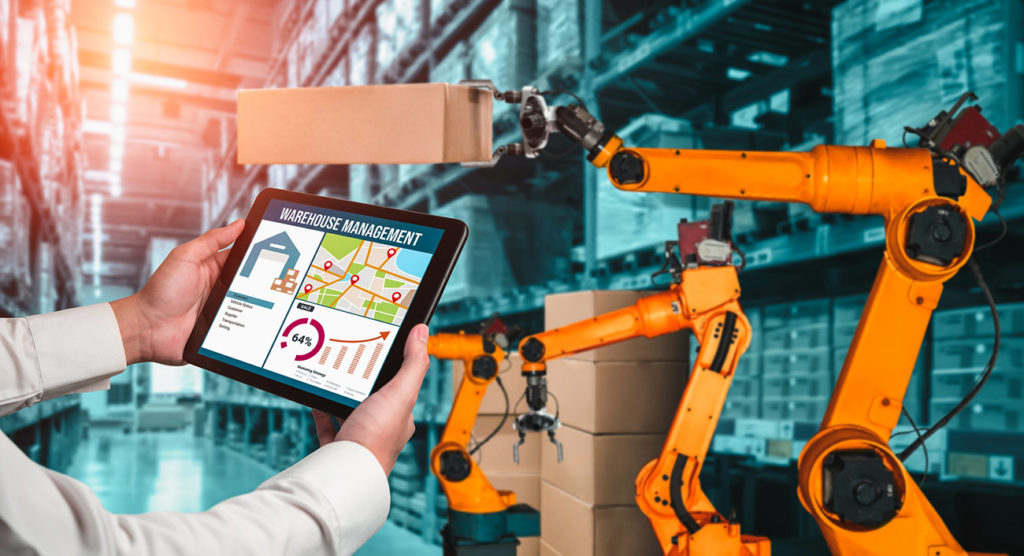Table of Contents
ToggleThe impact of digitalization on smart manufacturing
Digitalization is radically transforming the smart manufacturing sector by introducing innovative technologies that optimize production processes. From the Internet of Things (IoT) to artificial intelligence (AI), these advancements enable real-time monitoring and management of operations.
Connected sensors play a major role in this transition. They collect valuable data on equipment and processes, allowing manufacturers to make informed decisions. The analysis of collected data helps anticipate potential failures and minimize downtime, resulting in an increase in productivity.
The implementation of cloud computing solutions also facilitates collaboration among geographically dispersed teams. By centralizing data, companies can access necessary information at any time and from anywhere, making decision-making more agile.
Moreover, the integration of AI into production systems allows for the optimization of supply chains. Machine learning algorithms can analyze market trends and predict demand, enabling manufacturers to adjust their production accordingly.
Challenges abound in this transformation. Issues related to cybersecurity are increasingly critical, especially with the rise in attacks targeting connected infrastructures. Furthermore, employee resistance to change can hinder the adoption of these new technologies.
For a successful transition to smart manufacturing, companies must invest in training their personnel and ensure data security. This contributes to building a climate of trust around new solutions and encourages the acceptance of innovation.
In summary, digitalization is a catalyst for change in smart manufacturing. The adoption of new technologies has become a necessity for companies wishing to remain competitive in this rapidly evolving market.
Integration of digital technologies in the manufacturing process
Digitalization is profoundly transforming how companies approach smart manufacturing. By integrating digital technologies, production processes become more agile, responsive, and efficient, thereby addressing the challenges of the contemporary market.
One of the fundamental elements of this transformation is the integration of digital technologies into the manufacturing process. This includes the use of advanced production management systems, Internet of Things (IoT), and artificial intelligence (AI) to supervise and optimize each step of the production chain.
Digital technologies enable:
- Automation of processes: Reduction of human errors and improvement of productivity.
- Real-time data collection: Monitoring of performance and working conditions for better decision-making.
- Predictive analysis: Anticipation of equipment failures and production demands.
- Mass customization: Quick response to specific customer needs while maintaining economies of scale.
One of the main sources of improvement lies in the increased connectivity between machines and tools. Factories are becoming true interconnected ecosystems where each element can communicate and share information, promoting faster and more informed decision-making.
Furthermore, this digitalization impacts inter-team collaboration by enabling instant access to data and analytics. Teams can thus work more coherently and coordinatedly, enhancing overall operational efficiency.
In summary, digitalization is disrupting the landscape of smart manufacturing. It not only improves performance but also allows agility in responding to market demands, which is crucial for the long-term competitiveness of companies.
Optimization of resources through data analysis
Digitalization is profoundly transforming the smart manufacturing sector. With the integration of new technologies, companies can now optimize their production processes and enhance their efficiency. The use of digital tools allows for better data management and fosters innovation.
One of the main benefits of this transformation lies in resource optimization. With data analysis, manufacturers can monitor their machines’ performance in real time and adjust their processes accordingly.
Here are some key advantages of data analysis in smart manufacturing:
- Failure prediction: Machine learning algorithms can anticipate equipment failures, thus reducing unexpected downtime.
- Quality improvement: Continuous analysis of production data helps identify anomalies, ensuring products meet standards.
- Inventory management: With increased visibility into production and consumption flows, companies can manage their inventories better and avoid excess costs.
- Production customization: The use of data allows for lifting traditional constraints, making custom production according to customer demand possible.
Finally, human capital also plays a crucial role in this process of digitalization. Employees must be trained and made aware of new technologies to fully benefit from these innovations. Collaboration among teams and the use of digital tools are essential for a successful transformation.
Thus, digitalization in smart manufacturing represents a major opportunity for companies looking to stand out in the market. By investing in these advanced technologies, they can not only improve their performance but also prepare for the future challenges of the industry.











